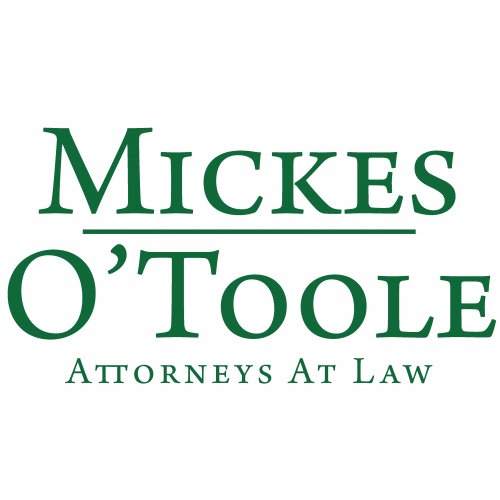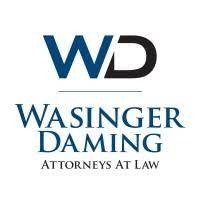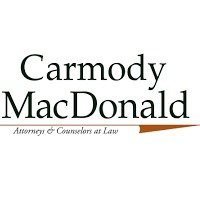Best FDA Law Lawyers in St Louis
Share your needs with us, get contacted by law firms.
Free. Takes 2 min.
List of the best lawyers in St Louis, United States
About FDA Law in St Louis, United States
FDA Law refers to the body of federal regulations administered by the U.S. Food and Drug Administration (FDA) governing food, drugs, medical devices, cosmetics, tobacco products, and more. In St Louis, companies, healthcare professionals, and research organizations interact with FDA regulations through manufacturing, distribution, clinical trials, and product development. Adherence to these standards ensures public safety, integrity in product claims, and legal compliance. The St Louis region, known for its vibrant bioscience sector, frequently faces FDA compliance challenges due to its concentration of pharmaceutical and medical device companies.
Why You May Need a Lawyer
Legal representation in FDA Law is crucial for a variety of reasons. If you are a business bringing a new product to market, you may need guidance on labeling, approval processes, or recall obligations. Healthcare providers and researchers may encounter regulatory compliance requirements regarding clinical trials or reporting of adverse events. Importers and exporters must comply with FDA regulations for international trade. Individuals or companies facing FDA investigations, warning letters, or enforcement actions will benefit from experienced legal counsel to navigate potential fines or business closures. A lawyer ensures your operations meet complex agency standards while protecting your rights and interests.
Local Laws Overview
While FDA regulations originate at the federal level, St Louis entities must also consider Missouri state food and drug laws. The Missouri Department of Health and Senior Services plays a role in public health enforcement, sometimes coordinating with federal authorities. There may be local ordinances affecting product sales, packaging, and marketing in the city or county. St Louis is also home to several research institutions and hospitals that participate in FDA-regulated clinical trials. Legal requirements can differ for pharmaceuticals, devices, supplements, or foods, so understanding the interplay between local and federal laws is essential for legal compliance in this region.
Frequently Asked Questions
What products are regulated by the FDA in St Louis?
The FDA oversees foods, dietary supplements, drugs, medical devices, cosmetics, biologics such as vaccines, animal foods, tobacco products, and some electronic products. Companies in St Louis involved in these areas must comply with FDA guidelines.
What are the first steps for obtaining FDA approval for a new product?
You must determine if your product requires premarket approval, typically by submitting applications such as a New Drug Application or 510(k) for devices. Consulting an attorney or regulatory expert early in the process can help ensure proper documentation and adherence to testing requirements.
Are there specific FDA compliance challenges unique to St Louis?
St Louis is home to many bioscience and medical device companies as well as large hospitals and research entities. Frequent challenges include complying with clinical trial regulations, manufacturing practices, and quality assurance in large-scale operations.
What happens if a business violates FDA regulations?
The FDA may issue warning letters, mandate recalls, seize products, or take civil and even criminal action. Immediate legal counsel is advised to respond to any agency communication or enforcement action.
Can a local or state agency override FDA regulations?
FDA regulations usually preempt contradictory state or local laws. However, local authorities in St Louis and Missouri may impose additional requirements that do not conflict with federal rules, such as business licensing and reporting obligations.
How are clinical trials regulated in St Louis?
Clinical trials must comply with both FDA requirements and local Institutional Review Board (IRB) oversight to protect patient safety and data integrity. Research institutions in St Louis work closely with the FDA during all trial phases.
What should I do if the FDA issues me a warning letter?
Contact an FDA law attorney as soon as possible. An experienced lawyer can help you respond appropriately, correct violations, and communicate effectively with the agency to resolve the issue and minimize penalties.
How long does FDA product approval take?
Approval timelines vary. Drugs and complex devices may take years, while supplements or foods can require weeks to months for necessary notifications or submissions. Legal counsel can help anticipate the timeline for your specific product.
Can I market supplements or cosmetics without FDA approval?
Generally, dietary supplements and cosmetics do not require premarket approval but must comply with labeling, safety, and adverse event reporting rules. Mislabeling or making unsubstantiated health claims can result in enforcement actions.
Where can I find more information about FDA compliance for my business?
You can consult the FDA website, Missouri state health agencies, local chambers of commerce, or a qualified FDA law attorney for advice tailored to your operations in St Louis.
Additional Resources
- U.S. Food and Drug Administration (FDA) - Missouri Department of Health and Senior Services - St Louis Business Development Office - BioSTL (bioscience industry organization) - Washington University School of Medicine (for clinical research contacts) - Local law libraries with FDA regulatory materials
Next Steps
If you believe your business or organization in St Louis may be affected by FDA regulations, it is advisable to consult with a qualified attorney experienced in FDA law. Gather all relevant documentation, including product information, prior FDA communications, and any compliance certifications. Consider scheduling an initial consultation to evaluate your risks and obligations. Stay proactive by routinely monitoring regulatory updates and conducting compliance audits. Legal advice will help you navigate complex regulations, avoid costly penalties, and ensure that your products and practices meet all requirements needed for success in the region.
Lawzana helps you find the best lawyers and law firms in St Louis through a curated and pre-screened list of qualified legal professionals. Our platform offers rankings and detailed profiles of attorneys and law firms, allowing you to compare based on practice areas, including FDA Law, experience, and client feedback.
Each profile includes a description of the firm's areas of practice, client reviews, team members and partners, year of establishment, spoken languages, office locations, contact information, social media presence, and any published articles or resources. Most firms on our platform speak English and are experienced in both local and international legal matters.
Get a quote from top-rated law firms in St Louis, United States — quickly, securely, and without unnecessary hassle.
Disclaimer:
The information provided on this page is for general informational purposes only and does not constitute legal advice. While we strive to ensure the accuracy and relevance of the content, legal information may change over time, and interpretations of the law can vary. You should always consult with a qualified legal professional for advice specific to your situation.
We disclaim all liability for actions taken or not taken based on the content of this page. If you believe any information is incorrect or outdated, please contact us, and we will review and update it where appropriate.















